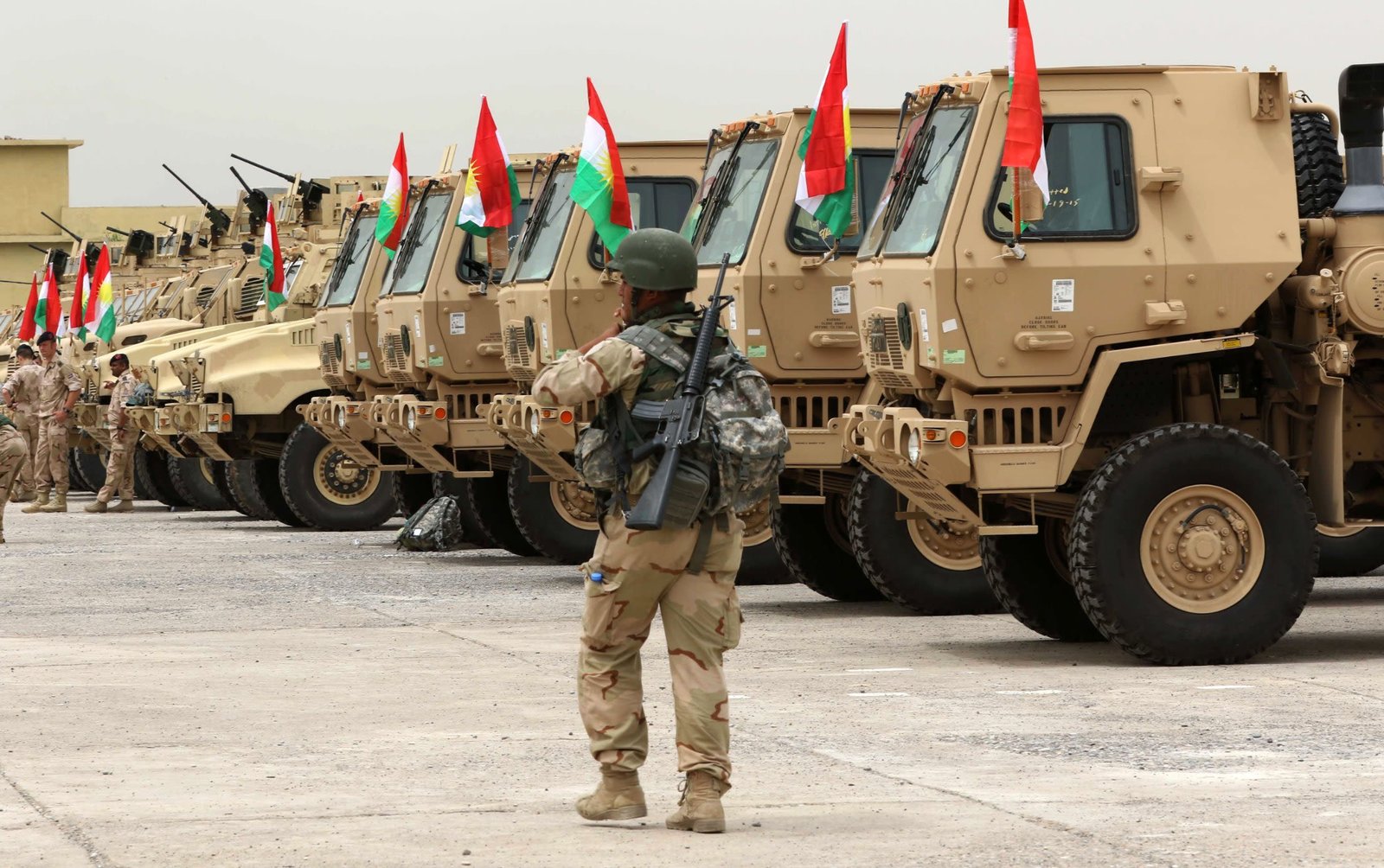The Pentagon’s Iraq Budget and Inspector General Report Suggest a Shift in Priorities

The Pentagon’s requested budget for Iraq in 2026 reflects a significant realignment of priorities. The total allocation has dropped by 44% compared to 2025 and by 12% compared to 2024. Despite this sharp decline, the budget for the Peshmerga Ministry’s training and equipment program has increased by 6% from 2025 and by an astonishing 1,120% compared to 2024. In contrast, the allocation for Iraq’s Ministry of Defense has plummeted by nearly 300%, falling from $189 million to just $48 million. Much of this funding appears to have been reallocated to the Iraqi Counter-Terrorism Service (CTS), whose budget has surged by 622% from $9 million to $65.6 million.
Context: While the Peshmerga’s training and equipment budget has increased, the United States has eliminated stipends previously provided to some unified Peshmerga brigades. The US allocated $135 million for Peshmerga stipends in 2024, which decreased to $60 million in 2025 and has been completely eliminated for 2026. Additionally, the Infrastructure Repair and Renovation budget has been entirely cut. This allocation stood at $10 million in 2024, was reduced to $4.8 million in 2025, and has now been reduced to zero for 2026.
Analysis: Much of the reporting in Iraqi and Kurdish media has mischaracterized the cutoff of the Peshmerga stipends, presenting it as a sign of abandonment by the US. This narrative ignores the broader context of shifting US priorities and the gradual phase-out plan that had been in place. The stipend program, originally designed to supplement the salaries of several thousand fighters in the unified brigades, was always conditional on reforms. By 2025, the reduced stipend, equivalent to $5 million per month, was no longer enough to serve as a full salary for the growing number of fighters integrated into the reform framework. These salaries were instead transferred to the KRG’s Ministry of Finance, which is funded by the federal government in Baghdad. The stipends thus evolved into a form of pocket money or symbolic assistance.
For example, in August 2024, financial aid provided by the US-led coalition amounted to roughly 20 billion dinars per month. At that time, the individual stipend was reduced from 432,000 to 380,000 dinars per fighter, and it has continued to decrease as more KDP and PUK-aligned fighters were brought into the system without a proportional increase in total funds. As a result, the per capita amount dropped, transforming the payments from meaningful salaries into minimal allowances.
However, US disappointment with Peshmerga reforms should not be overlooked. There may be diminishing rationale for long-term investment in a force that appears unable to implement meaningful reforms. A separate US Inspector General report notes that “despite efforts at reforms meant to establish nonpartisan military units under one unified command, the brigades retain party-aligned commanders and operate in party-aligned territory.” This indicates restructuring rather than genuine unification, contradicting the goals established by the US for the Peshmerga reform program. Nevertheless, the Peshmerga remains strategically valuable to the US in the short term, which explains continued support for training and equipment programs.
Beyond the Peshmerga, the 2026 Pentagon budget points to a broader recalibration in the US approach to Iraq’s security landscape. Support for the Iraqi Ministry of Defense has sharply declined, while investment has shifted toward the CTS and, to a lesser extent, the Peshmerga. The nearly $1 million previously allocated to the Interior Ministry’s Border Guard Forces has been completely eliminated. These border guards, largely Kurdish from the KDP and PUK, nominally operate under Iraq’s Interior Ministry and previously played an important role along the Turkish and Iranian borders, particularly between advancing Turkish forces and the PKK. However, as the PKK enters a peace process with Turkey, this force’s strategic importance appears to be diminishing.
Within Iraq’s security apparatus, the US is clearly and decisively pivoting toward supporting the Counter-Terrorism Service, widely regarded as Iraq’s most capable force. Other forces face increasing infiltration by pro-Iran groups, prompting the US to concentrate its support more strategically on specific units. This shift is not only a reflection of evolving dynamics in Iraq and the wider region, but also part of a broader retrenchment under the Trump administration, which has prioritized reducing expenditures as part of efforts to address the growing US budget deficit.









